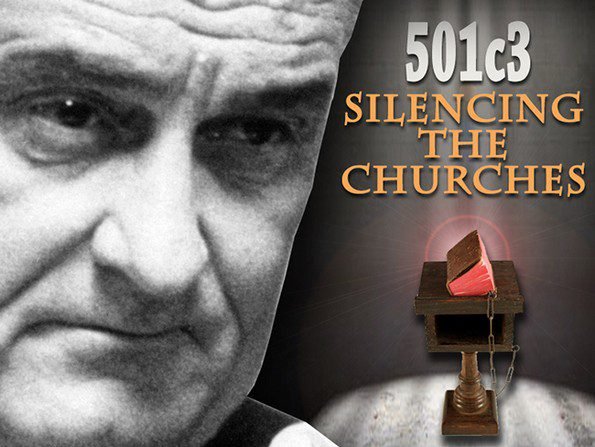
I listen to a lot of atheist podcasts and watch a lot of videos. I have noticed a disturbing trend among these content creators: when it comes to church taxation, tax exemption, non-profit status, and 501c3 status, many of them don’t know what the hell they are talking about. I used to politely and privately correct these content creators. Unfortunately, not one person responded to me, thanking me for correcting their mistake, so I stopped doing so. If we are going to critique Christianity, particularly Evangelicalism and the Independent Fundamentalist Baptist (IFB) church movement, then we have a duty to so honestly and factually.
ALL churches, by default, are granted 501(c)(3) status but the Internal Revenue Service (IRS). Churches don’t have to apply for this status, nor do they have to be non-profit. If a group of people gather together in a home somewhere, have a pastor/teacher/elder, and worship their God on a regular basis, the IRS, by default considers them a church. In the mind of the IRS, if it looks like a church, it is a church. The IRS goes out of its way to NOT define what a church is. Yes, the IRS publishes criteria for what constitutes a church, but they do NOT use this list in any meaningful way when determining 501(c)(3) status. Freedom of religion is all that matters to the IRS, so if a church says it’s a church, that’s good enough for them.
501(c)(3) status allows a church exemption from federal taxation. Its donations are tax-exempt, and donors can claim their donations on their tax returns. This does not mean the church’s pastor and/or staff is exempt from federal taxation. He still has to pay federal income tax, Medicare tax, and Social Security tax. Pastors are generally considered self-employed, though the law is complex on their status. Pastors should receive a 1099 from their churches, not a W-2 (generally speaking). I will show in another post how pastors can use special provisions in the law — exemptions and deductions only available to them — to drastically reduce their taxable income. (It’s a great gig if you can get it. Just start a church and all these perks can be yours!)
In many states, churches are exempt from sales tax and real estate tax. I lived in one area where the Catholic church owned thousands of acres and numerous houses — all exempt from real estate taxes. I bought several new cars through one church I pastored, saving hundreds of dollars in sales tax. When I went to file the title for one car, the person in charge refused to do it. She told me I had to pay taxes on the purchase. I told her I didn’t. The car was owned by the church and provided to me for my use. This went on for a couple of days. Finally, her boss in Columbus informed her that she had to title the car.
Churches are not necessarily non-profit. Here in Ohio, a church must apply for non-profit status. The churches I pastored were non-profit corporations (though none of them actually followed Ohio corporate law). Incorporating allows churches to shield their officers from personal liability for malfeasance. When churches are sued, it’s the corporation that is sued, and not its officers (pastors, deacons, board members). It might be surprising for readers to learn that, in incorporated churches, it’s their constitution and bylaws that determine how a church is governed and how claims are adjudicated, not the Bible. Churches learn this the hard way when they have conflict or when they are trying to fire a pastor.
Once a church has non-profit status, it can then file for OFFICAL 501(c)(3) status. This is different from the generic 501(c)(3) status granted to all churches. Official 501(c)(3) status requires churches to file documents with the IRS, proving that they are a charity worthy of tax exemption. Once a church is approved, it receives an official letter that states it has 501(c)(3) status. Denominations apply for 501(c)(3) status, and once approved, all churches under their umbrella are, by default, granted official 501(c)(3) status. Once approved, churches have greater access to grants and programs, along with special mailing privileges with the U.S. Post Office.
Hopefully, readers will find this helpful. I am not a tax lawyer nor accountant. I do, however, have extensive experience starting new churches. It was important to me at the time to know exactly what the law said about churches. While I haven’t started a new church in a few years, I am unaware of any meaningful changes in the law that would alter what I have written here. If you have any questions, I am more than happy to answer them.
Bruce Gerencser, 68, lives in rural Northwest Ohio with his wife of 47 years. He and his wife have six grown children and sixteen grandchildren. Bruce pastored Evangelical churches for twenty-five years in Ohio, Texas, and Michigan. Bruce left the ministry in 2005, and in 2008 he left Christianity. Bruce is now a humanist and an atheist.
Your comments are welcome and appreciated. All first-time comments are moderated. Please read the commenting rules before commenting.
You can email Bruce via the Contact Form.


